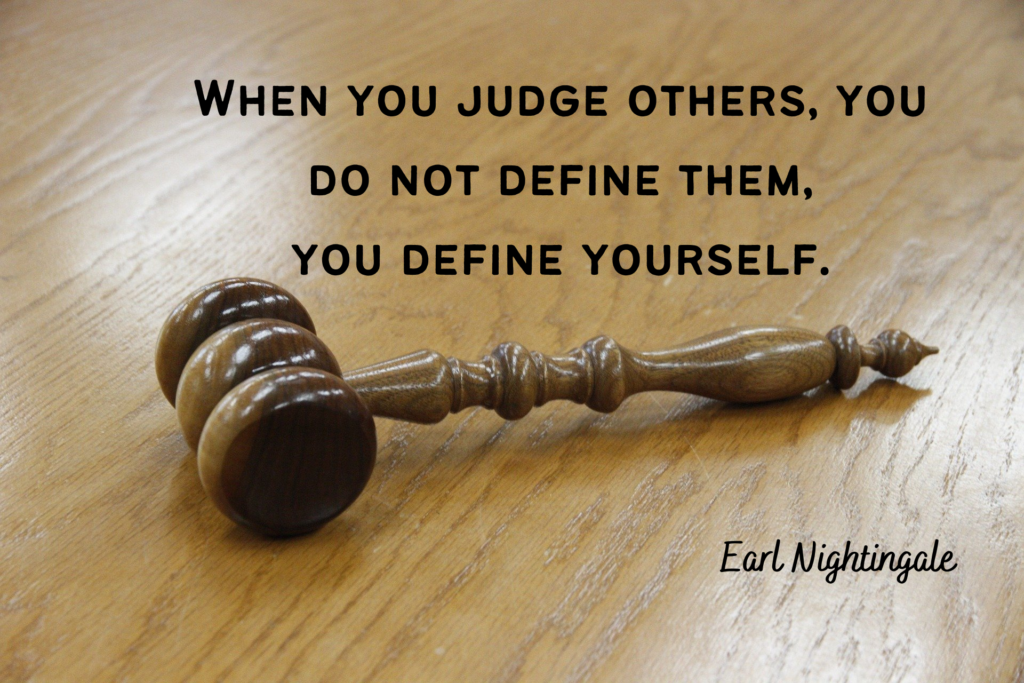Introduction
As Christians, we tend to be moralists, pointing our fingers at all the decay we see in our world. Wickedness is rampant – maybe no more rampant than what Paul referred to in the pagan city of Rome, but still widespread. In Romans 1:18 – 32, it is as if Paul had watched a news cycle just last night!
What “THEY” do
Their lives became full of every kind of wickedness, sin, greed, hate, envy, murder, quarreling, deception, malicious behavior, and gossip. They are backstabbers, haters of God, insolent, proud, and boastful. They invent new ways of sinning, and they disobey their parents. They refuse to understand, break their promises, are heartless, and have no mercy.
Romans 1:29-31 NLT
But when we turn the corner from chapter 1 to chapter 2 in Romans, we read words that may be shocking!
What “YOU” do
You may think you can condemn such people, but you are just as bad, and you have no excuse! When you say they are wicked and should be punished, you are condemning yourself, for you who judge others do these very same things.
Romans 2:1 NLT
Those words stop us in our tracks! Notice the pronouns that the Apostle Paul uses in Romans 1:29- 31 above, “they, their, them.” Then read the pronouns in Romans 2. He begins with “YOU!” We can imagine Paul teaching (instead of writing a letter). First, he looks to his left – and scathingly points out their sins, enumerating them harshly. But then he turns to his right – looking right at you and me, and practically shouts at us – “YOU ARE JUST LIKE THEM AND YOU HAVE NO EXCUSE!”
The Elder Brother and judgment
When I read these words in Romans, I think about the story of the Prodigal Son. We love to applaud the son that ran away, squandering his inheritance but regaining his right mind, returning home. And we love to celebrate the Father as He picked up his long robes and ran to embrace his runaway son. But we hardly know what to do with the elder brother. And I fear that may be the character with whom we most relate. He was angry, unforgiving, and judgmental. Even though the elder brother lived in the father’s house, he was still far from him. The illustration of the elder brother shows us how those who think they are close to God should respond to the lost.
We work ourselves up into a state of self-righteous indignation over the disgraceful behavior of other people, while the very same behavior seems not nearly so serious when it is ours, rather than theirs.
John Stott, The Message of Romans, p 82
The “So What” Question
So what do we do? How do we respond to Paul’s charge about judgment?
Very few people get judged into life change. Far more get loved into it.
Carey Nieuwhof
All of us experience the human condition. As recipients of mercy, we must show mercy to others. Jesus says clearly that He did not come to judge. If our Master doesn’t judge, neither should we. Imagine the impact we could make on our world if we took Jesus’ commands seriously:
Jesus replied, “‘You must love the Lord your God with all your heart, all your soul, and all your mind.’ This is the first and greatest commandment. A second is equally important: ‘Love your neighbor as yourself.’ The entire law and all the demands of the prophets are based on these two commandments.”
Matthew 22:37-40 NLT
The message of grace
The message of grace is that we tend to our inner beings by putting off our old ways to allow the fruit of the Spirit to blossom in our lives; we do this because of Jesus’ great love for us.
The more you see your own flaws and sins, the more precious, electrifying, and amazing God’s grace appears to you.
Timothy Keller
It is fascinating to me to read the stories of Jesus in the Gospels. He never teaches us to reform our communities or lobby for better government. Instead, Jesus teaches us to serve, love, and let our lights shine. If the people known as the church will own their sin, repent, and walk worthy of their calling, our witness will bear fruit.
Jesus teaches in the sermon on the mount that we have issues with self-righteousness, religiosity, and lack of self-evaluation. He tells us we must attend to the plank in our eye before addressing the specks in other people’s eyes.
A mark of the discipleship community is the responsibility that disciples have to help each other remove the “speck” of sin from each others lives, but it must come from a humble and self-examined life that has removed the plank of self- righteous judgment. Then restoration can occur with the right attitude: “After self-criticism takes place, relationships are based on redemptive empathy rather than condemning detachment.
M. J. Wilkins, NIV Application Commentary, 2004
Prayer
Father, forgive our lack of awe and gratitude for the grace you shower on us. Teach us to repent of our judgmental tendencies. Develop in us Your love so that the world will know who You are and desire to worship You. Amen.

Thanks Beth. Great insight!